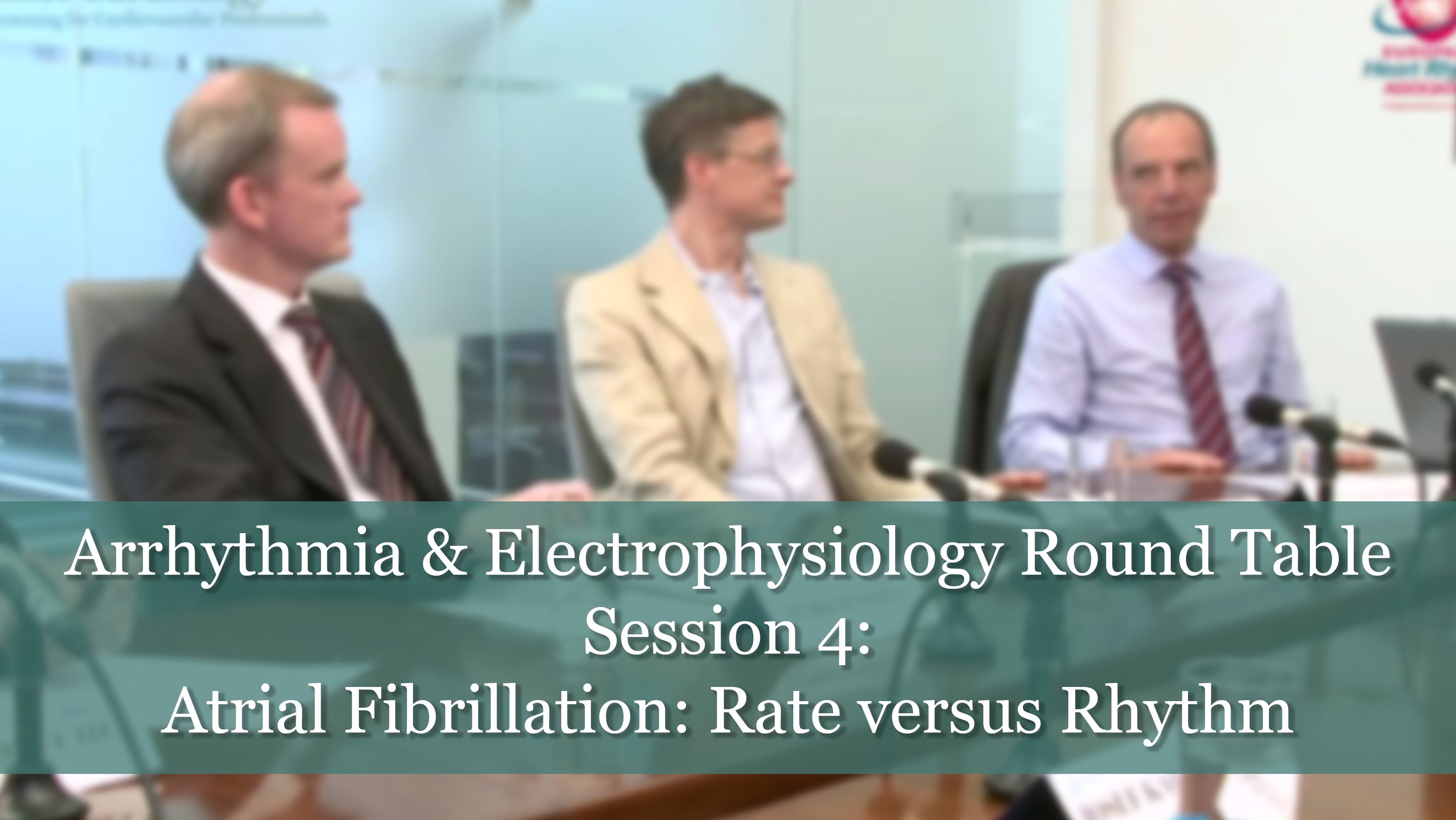Arrhythmia & Electrophysiology Round Table
Published: 05 April 2014
-
Views:
 336
336
-
Likes:
 7
7
-
Views:
 336
336
-
Likes:
 7
7
-
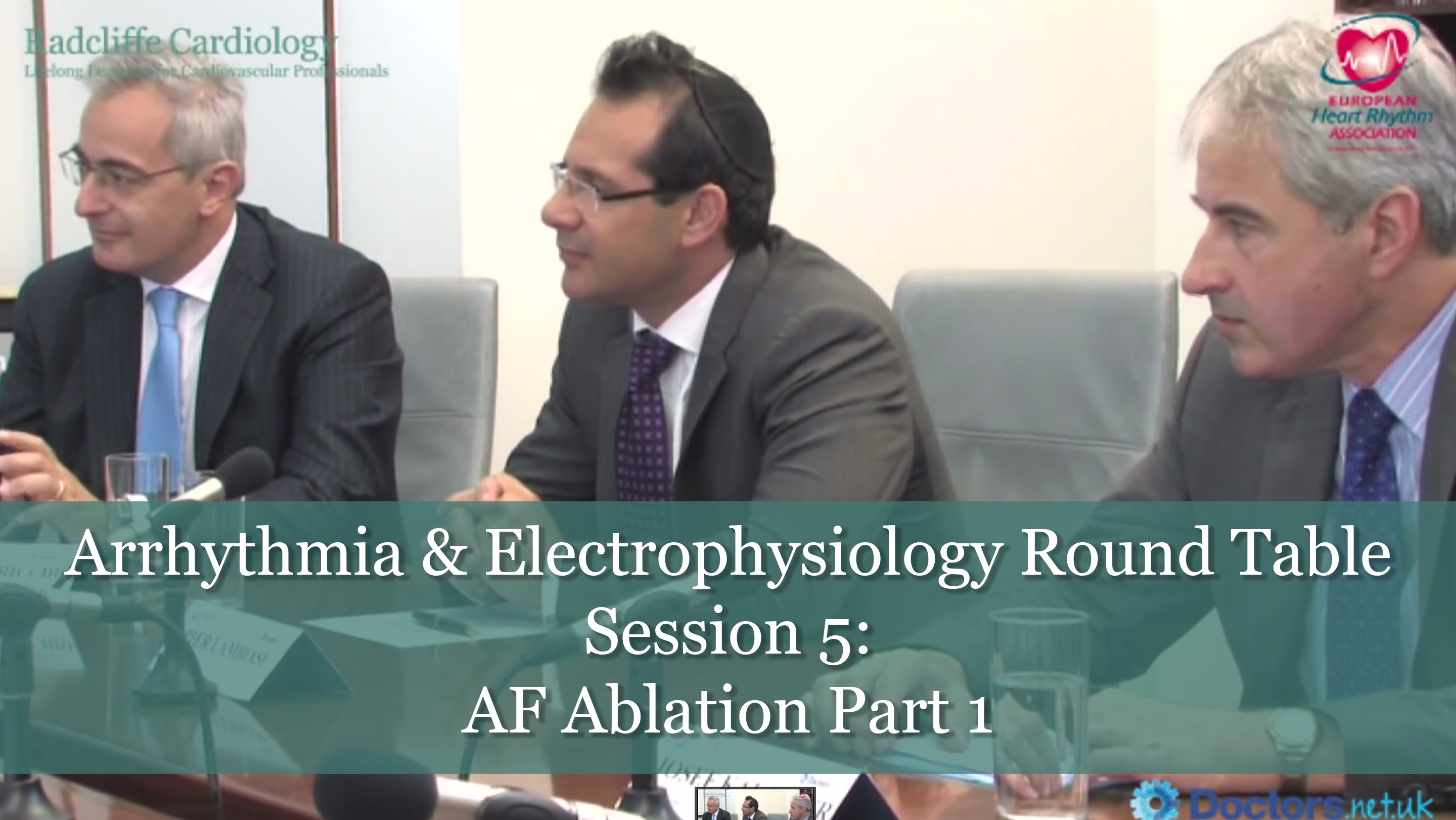 24m 37sPart 4 | Session 1 Could ablation be the first line therapy for paroxysmal AF?
24m 37sPart 4 | Session 1 Could ablation be the first line therapy for paroxysmal AF? -
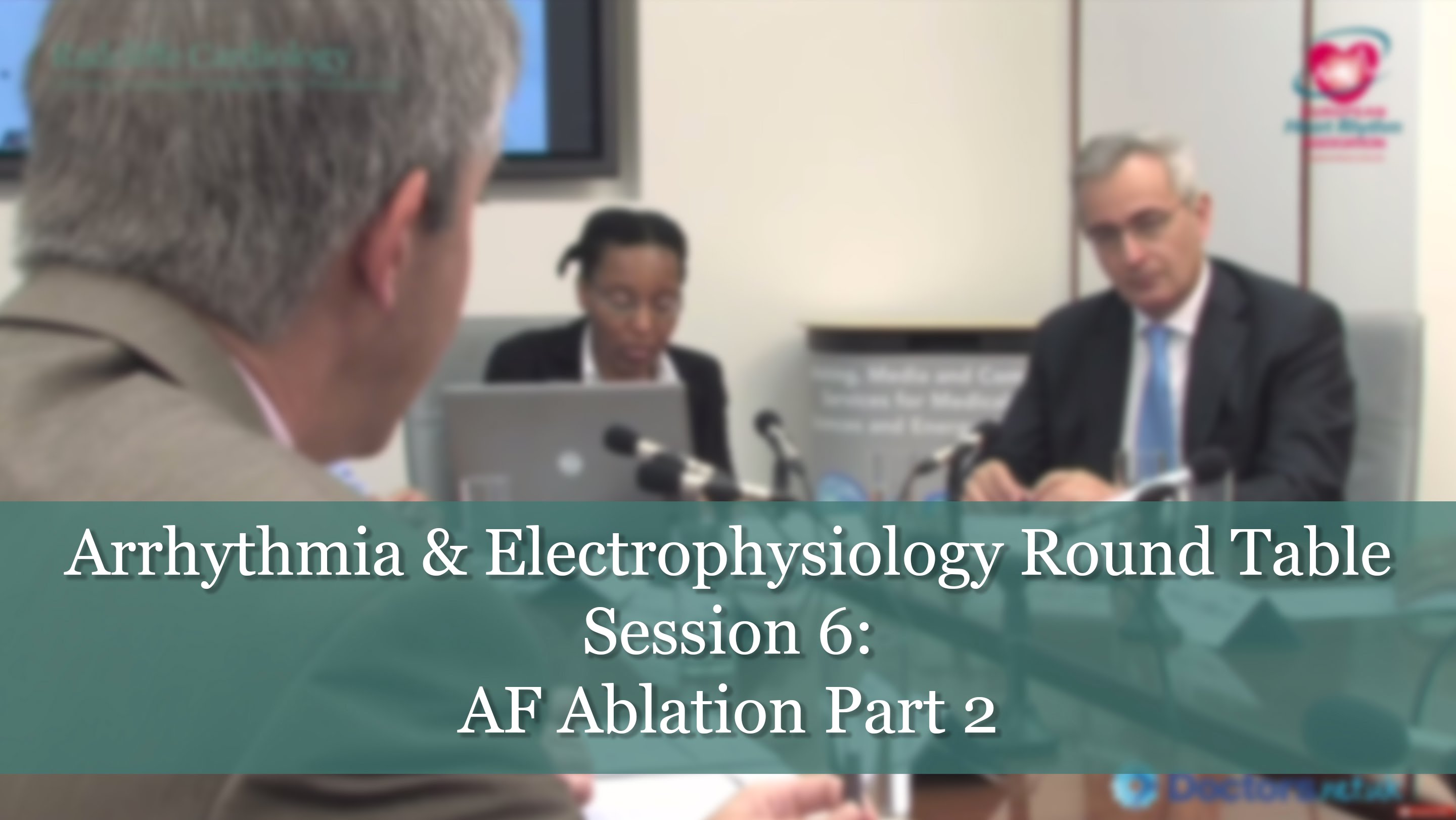 7m 8sPart 4 | Session 2 Follow-up issues with patients with atrial fibrillation
7m 8sPart 4 | Session 2 Follow-up issues with patients with atrial fibrillation
-
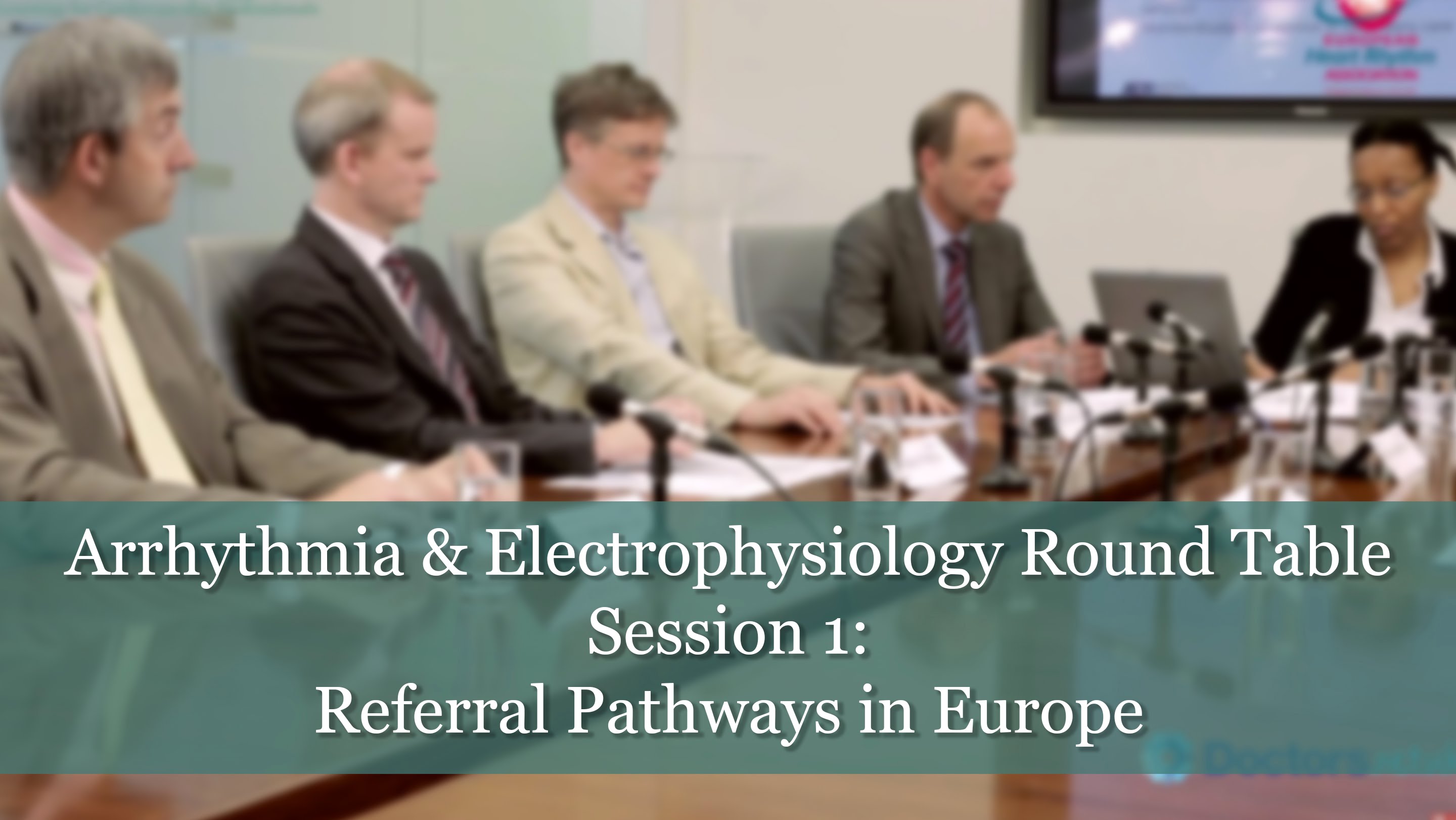 23m 42sPart 5 | Session 1 Part 1
23m 42sPart 5 | Session 1 Part 1 -
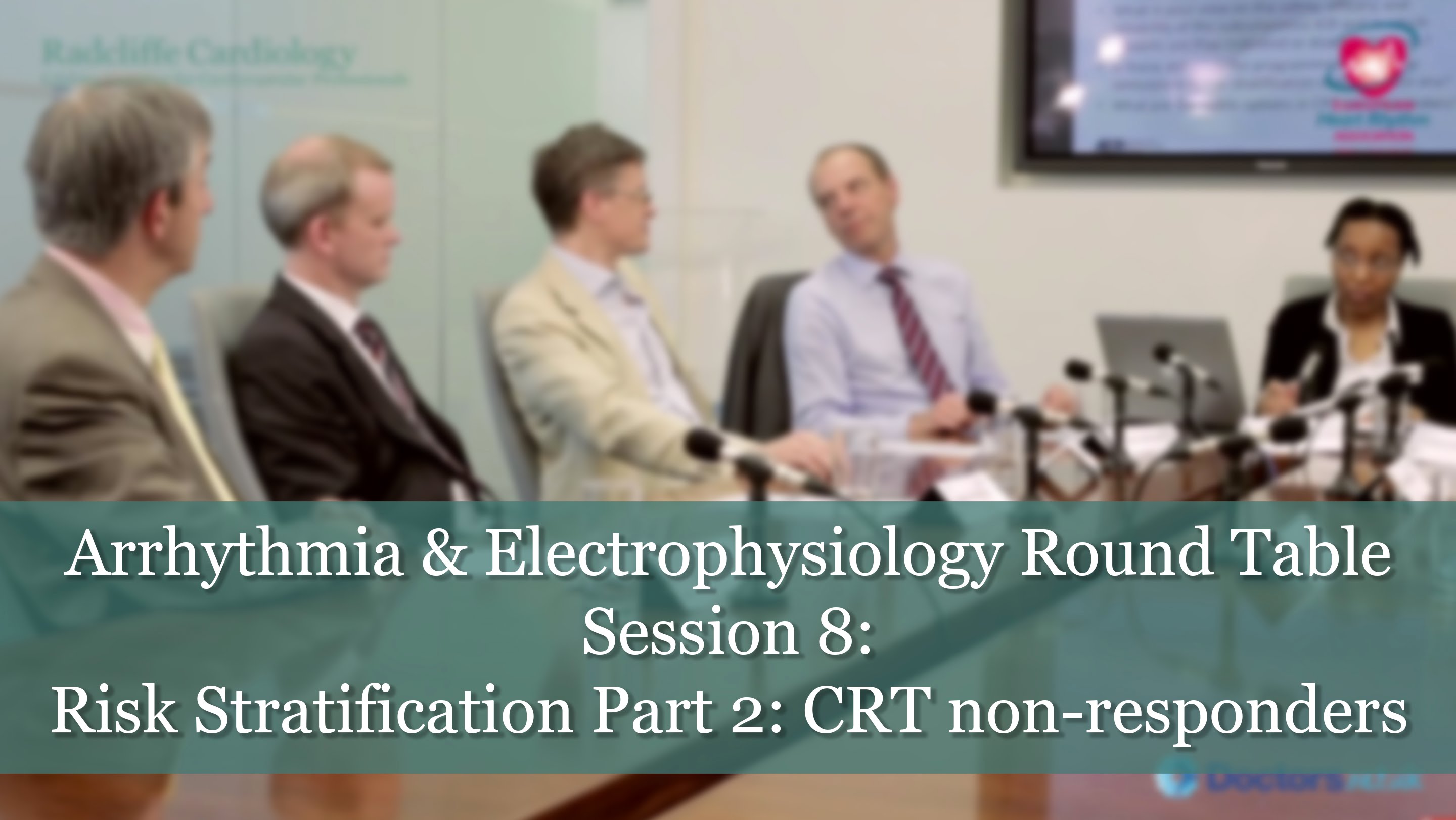 8m 34sPart 5 | Session 2 Part 2: RT non-responders
8m 34sPart 5 | Session 2 Part 2: RT non-responders
-
 25m 56sPart 1 Session One Angelo Auricchio, Hein Heidbuchel, Gerhard Hindricks, Josef Kautzner, Mark O’Neill, Richard Schilling
25m 56sPart 1 Session One Angelo Auricchio, Hein Heidbuchel, Gerhard Hindricks, Josef Kautzner, Mark O’Neill, Richard Schilling
-
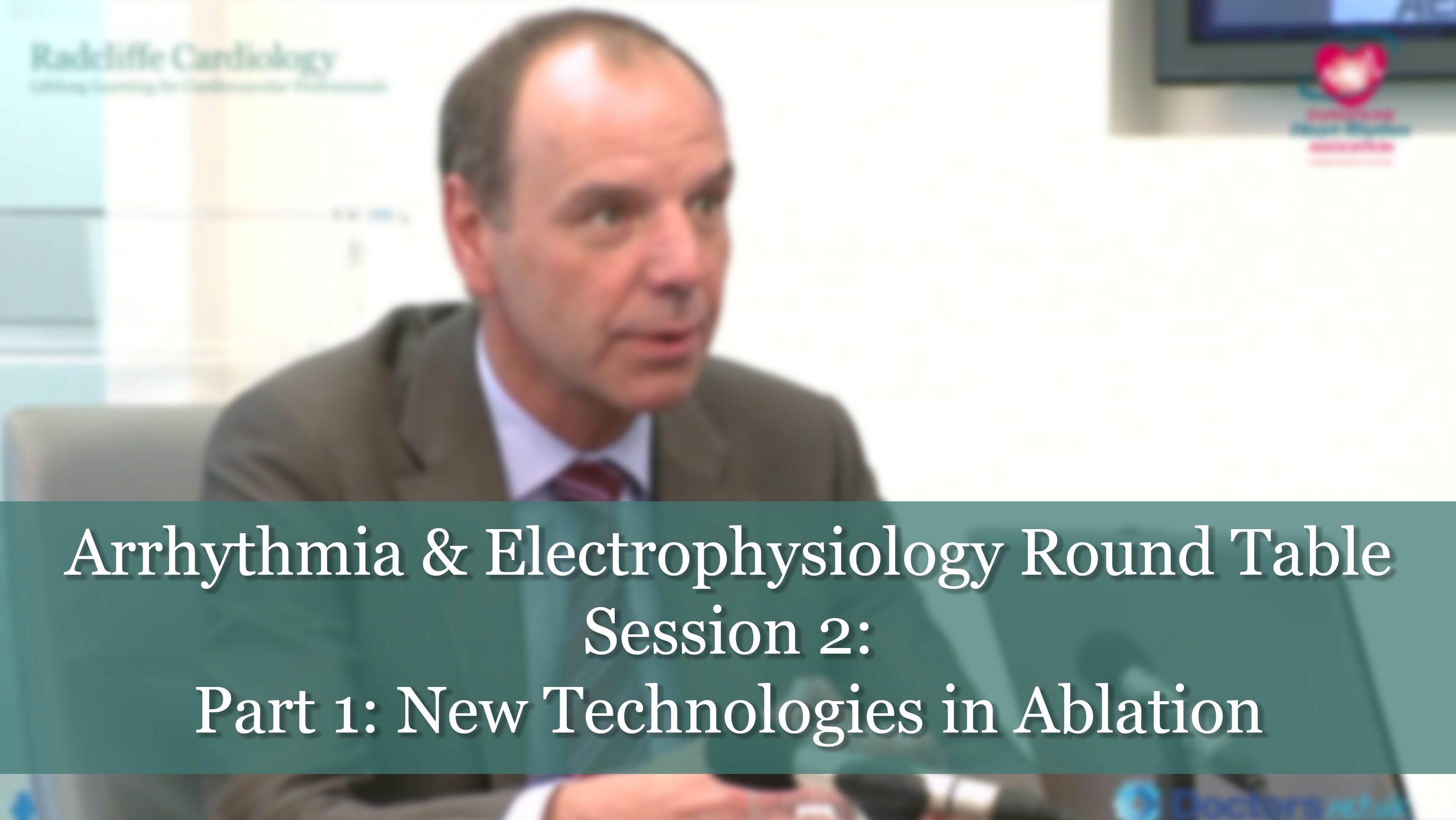 18m 48sPart 2 | Session 1 New Technologies in Ablation Angelo Auricchio, Hein Heidbuchel, Gerhard Hindricks, Josef Kautzner, Mark O’Neill, Richard Schilling
18m 48sPart 2 | Session 1 New Technologies in Ablation Angelo Auricchio, Hein Heidbuchel, Gerhard Hindricks, Josef Kautzner, Mark O’Neill, Richard Schilling
-
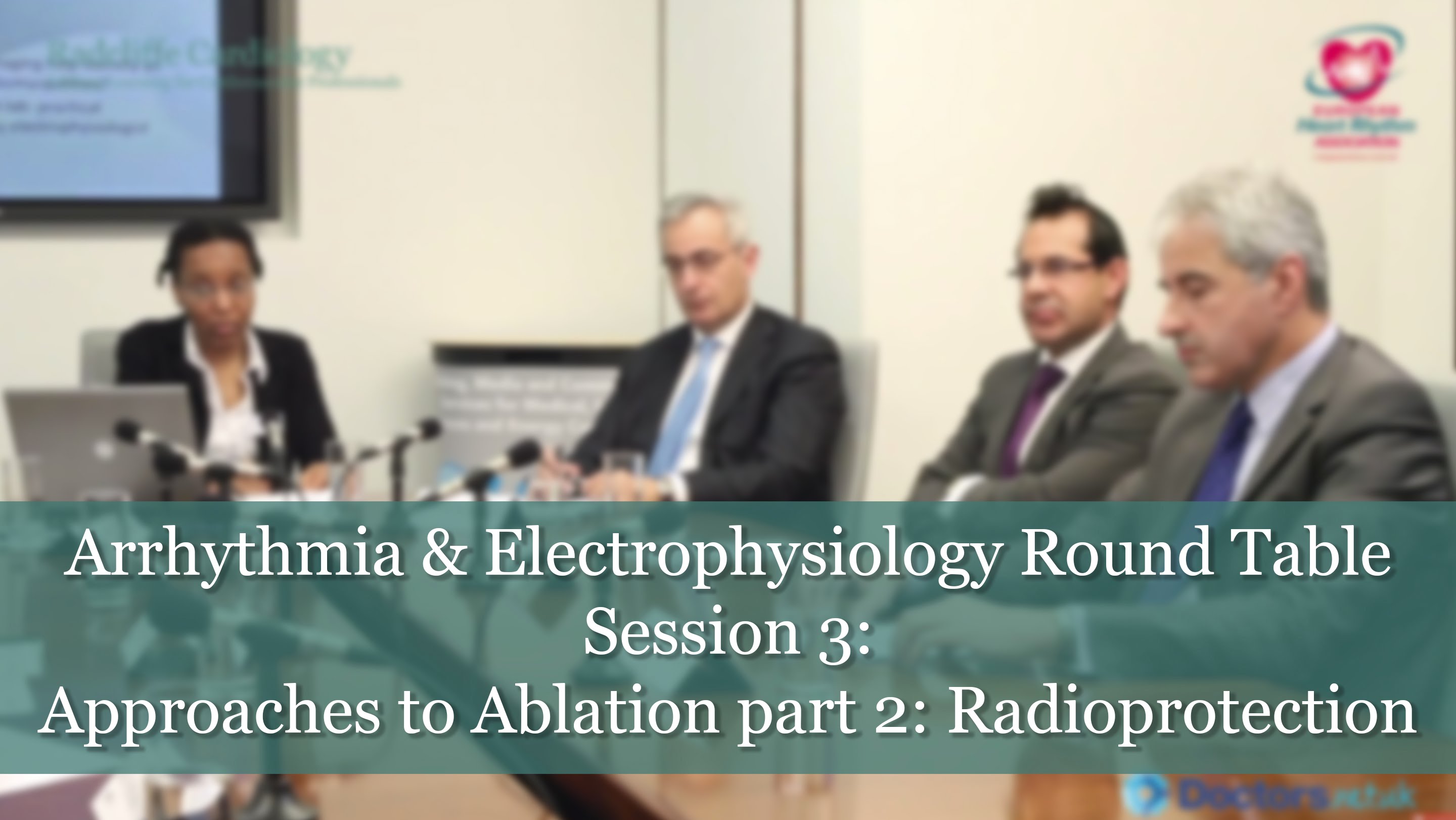 10m 21sPart 2 | Session 2 Radioprotection Angelo Auricchio, Hein Heidbuchel, Gerhard Hindricks, Josef Kautzner, Mark O’Neill, Richard Schilling
10m 21sPart 2 | Session 2 Radioprotection Angelo Auricchio, Hein Heidbuchel, Gerhard Hindricks, Josef Kautzner, Mark O’Neill, Richard Schilling
Overview
To mark the launch of Arrhythmia & Electrophysiology Review, RadcliffeCardiology.com in association with the European Heart Rhythm Association and doctors.net.uk, presents a series of eight video shorts from the Arrhythmia & Electrophysiology Round Table.
The Round Table videos comprise salient discussion and practical support for professionals concerned with the treatment of arrhythmias in Europe.

More from this programme
Part 1
Referral Pathways In Europe
| 1 session | |
| Session One | Watch now |
Part 2
Approaches to Ablation
Part 3
Atrial Fibrillation
| 1 session | |
| Rate versus rhythm | Watch now |
Part 4
AF Ablation
Part 5
Risk stratification
| 2 sessions | |
| Part 1 | Watch now |
| Part 2: RT non-responders | Watch now |
Faculty Biographies
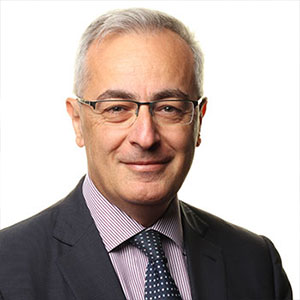
Angelo Auricchio
Director of the Clinical Electrophysiology Unit
Personal History
Prof Angelo Auricchio was born in 1960 in Terzigno, southern Italy. He speaks Italian, English and German.4
As a teenager, he was fascinated by mechanics and electricity. “In my view, the heart and the circulatory system is a wonderful piece of machinery that is driven by an electrical system that is both uncomplicated and powerful,” he says.5
He enjoys photography, sailing and music and is married.
Academic History
Prof Aurrichio graduated from Medical School and specialised in Cardiology at Università degli Studi di Napoli Federico II, Naples, in 1985 and 1989. He obtained a PhD in Cardiovascular Physiology at the University of Rome “Tor Vergata” in 1994. 2, 3, 4
He completed internships at the Department of Microbiology and Department of Metabolic Diseases at the University of Naples in 1983 and…
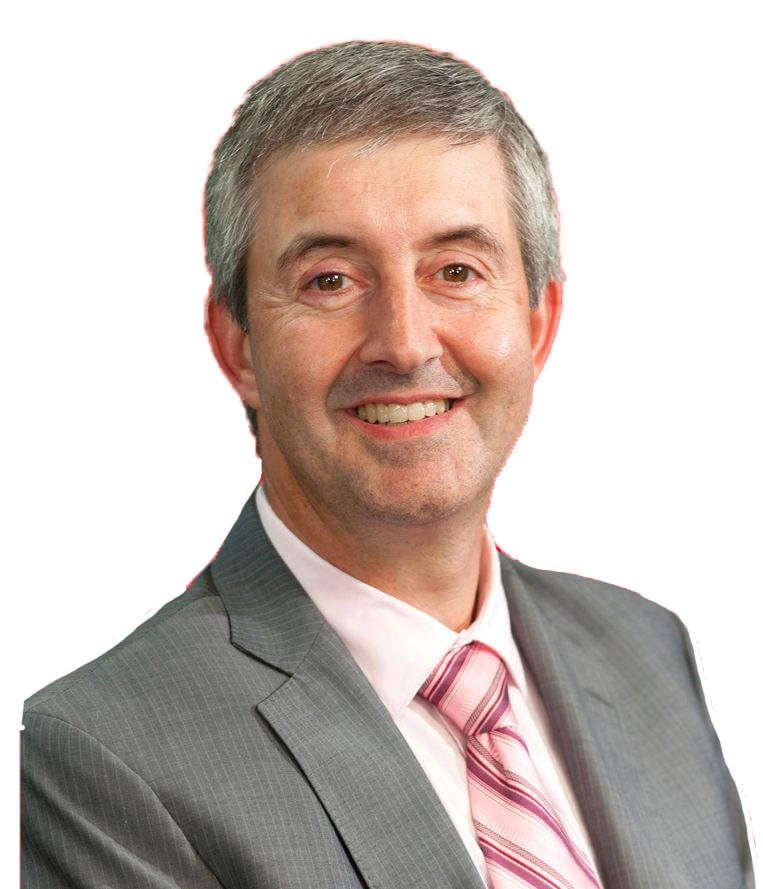
Hein Heidbuchel
Professor and Chair of Cardiology
Dr Hein Heidbuchel is a Professor and Chair of Cardiology at Antwerp University, Belgium. He is also guest Professor at Hasselt University. He is President of the European Heart Rhythm Association (2018–2020).
Dr Heidbuchel worked as Research Fellow of the NIH and Fogarty International at the University of Oklahoma (1993–1994) and was Fundamental Clinical Investigator of the Fund for Scientific Research Flanders from 1996 until 2006. He started as Professor of Cardiology – Arrhythmology at the University of Leuven, Belgium in 1994. In October 2016, he became the Chair of Cardiology at Antwerp University.
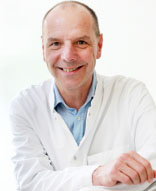
Gerhard Hindricks
Medical Director
Gerhard Hindricks is a professor of cardiology at the Charite University Hospital, Berlin, Germany. He heads one of the largest electrophysiology departments in Europe, providing services for up to 5,000 patients and performing almost 2,500 interventions for arrhythmias each year. Prof Hindricks is editor-in-chief of EUROPACE magazine, and is past president of the European Heart Rhythm Association, 2014 - 2016.
Prof Hindricks is on the AER editorial board.
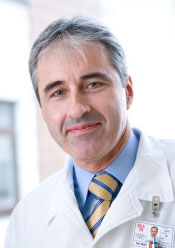
Josef Kautzner
Professor of Medicine
Josef Kautzner is Professor of Medicine at Charles University Medical School I in Prague, Czech Republic. A specialist in cardiology and electrophysiology, he is a Fellow of the European Society of Cardiology and a member of the Heart Rhythm Society (HRS) and the European Heart Rhythm Association. He is also Chairman of the Working Group on Arrhythmias and Cardiac Pacing of the Czech Society of Cardiology. His clinical and research interests include prevention of sudden cardiac death, catheter ablation of different arrhythmia substrates and cardiac resynchronisation therapy.
Prof Kautzner is a member of the Arrhythmia & Electrophysiology Review editorial board.
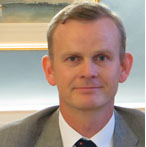
Mark O’Neill
Consultant Cardiologist and Professor of Cardiac Electrophysiology
Consultant Cardiologist and Professor of Cardiac Electrophysiology, St Thomas’ Hospital and King’s College London, London, UK
Professor Mark O’Neill completed his undergraduate medical and postgraduate scientific training at University College Dublin and the University of Oxford. In 2005, Dr O’Neill undertook a specialist training fellowship in cardiac electrophysiology in Bordeaux with Professors Michel Haissaguerre and Pier Jais, specifically to develop expertise in catheter ablation of atrial fibrillation. Dr O’Neill joined Guy's and St Thomas' in 2009 where he now leads the clinical research group in cardiac electrophysiology.
Research Interests:
- Comparison of fibrosis determined by MRI and electrical conduction properties.
- Evaluation and study of ablation lesions using MRI.
- Use of new catheter technologies for ablation.
- We believe that an interdisciplinary approach will accelerate progress,…
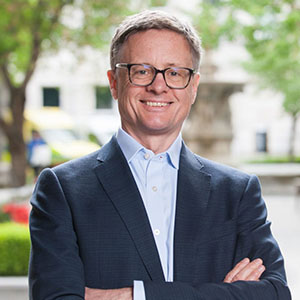
Richard Schilling
Consultant Cardiologist
Prof Schilling has been a consultant cardiologist at St Bartholomew’s and the Royal London NHS trust since 2001. He was appointed as chair in cardiology and electrophysiology in 2009. His current practice involves all aspects of electrophysiology and management of cardiac arrhythmia including catheter ablation, implantation of pacemakers and cardiac defibrillators, and cardiac resynchronization therapy for heart failure patients.
Prof Schilling was part of the team that lead the merger of the Heart and Barts hospitals which is one of the largest heart centers in Europe. He is the Strategy Director for Barts Hospital, the Medical Director for the Arrhythmia Alliance and President-Elect for the British Heart Rhythm Society.
Prof Schilling is a member of the AER editorial board.






